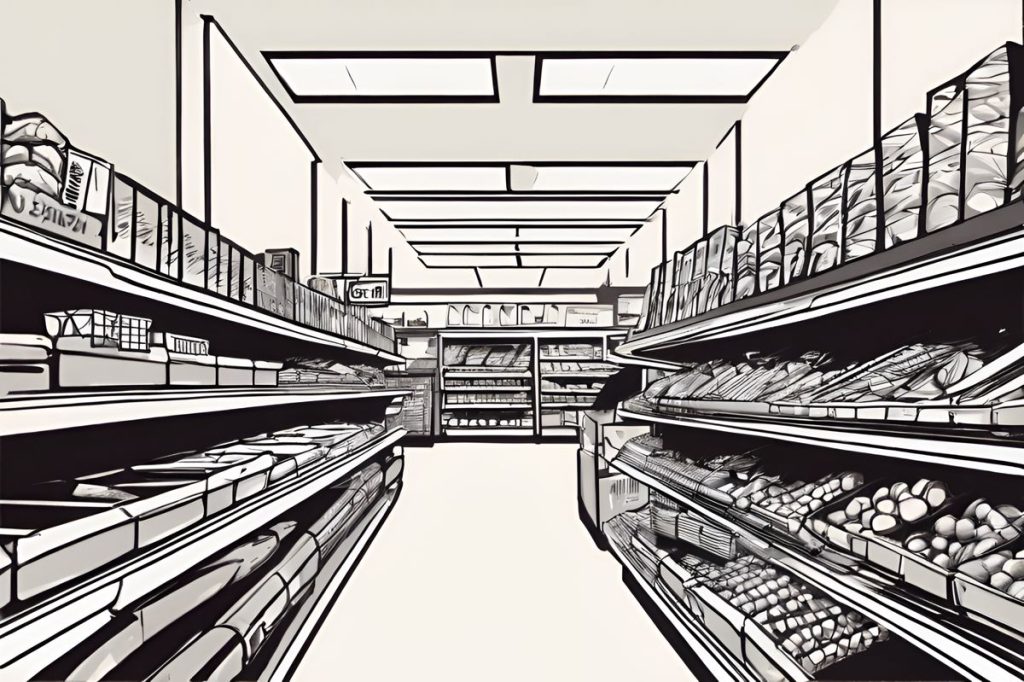In a recent crackdown on smuggling activities, authorities in Kyrenia seized nearly two metric tonnes of beef and 67.1 kilograms of lamb in supermarkets. Three individuals were arrested, highlighting the economic strain on local vendors due to price disparities and prompting increased border inspections and policy changes.
What was the outcome of the crackdown on smuggled beef in Kyrenia supermarkets?
Authorities in Kyrenia seized nearly two metric tonnes of beef and 67.1 kilograms of lamb in a raid targeting the illicit beef trade. The operation led to three arrests and highlighted the economic strain on local butchers and vendors due to price disparities between the north and the Republic. Efforts to combat smuggling include increased border inspections and policy changes.
The Illicit Beef Trade
In a substantial crackdown on illegal activities, authorities have intercepted a large quantity of smuggled beef. On Thursday night, a surprise operation led by the Turkish Cypriot police and customs officials uncovered nearly two metric tonnes of beef that had been illicitly brought into the north from the Republic. The supermarkets involved in this operation were located in the Kyrenia district, a region known for its picturesque harbor and historic castle.
The seized goods amounted to 1,987.7 kilograms of beef and an additional 67.1 kilograms of lamb. This significant find underlines the efforts of law enforcement to combat the trafficking of goods which undermines the local economy and poses potential health risks to consumers due to lack of proper regulatory checks.
Arrests and Economic Impact
The sting operation led to the arrest of three individuals, two aged 31 and one aged 38, who are believed to be connected with the smuggling ring. The disparity in meat prices between the north and the Republic has been cited as a driving force behind the illegal trade. Consumers, attracted by lower prices in the Republic, often purchase meat products there, leading to an increase in smuggling activities across the Green Line.
Beyond the immediate legal consequences for those involved, the incident sheds light on broader economic strains. Local butchers and vendors are caught between climbing costs and a dwindling consumer base, struggling to compete with the cheaper prices available in the South. In a dramatic demonstration of their plight, two lambs were publicly slaughtered earlier this year in protest, demanding governmental intervention.
Market Troubles and Consumer Behavior
The situation has reached a point where vendors, crushed by the weight of economic difficulties, are facing bankruptcy. Unable to cover basic expenses and forced to discard unsellable meat, these local businesses are calling for a solution that allows them to offer competitive pricing. As the crisis worsens, there is a stark contrast between the struggles of the local meat industry and the seemingly indifferent stance of the authorities.
This latest seizure is part of a pattern of similar cases, including a recent incident where a man was fined for attempting to smuggle 143 kilograms of red meat at the Ayios Dhometios crossing point. Another operation at the Pergamos crossing point and nearby Lysi village resulted in the discovery of 140 kilograms of beef smuggled from the Republic.
Addressing the Crisis
Efforts to address this issue have been multifaceted, involving increased border inspections and calls for economic policy changes to alleviate the pressures on local businesses. While the immediate focus remains on curtailing illegal smuggling, the long-term solution lies in stabilizing market prices and ensuring a level playing field for vendors on both sides of the divide. The community waits for a sustainable resolution that balances economic viability with legal compliance, hoping that future measures will restore the local market’s integrity and prevent such incidents from recurring.
What was the outcome of the crackdown on smuggled beef in Kyrenia supermarkets?
Authorities in Kyrenia seized nearly two metric tonnes of beef and 67.1 kilograms of lamb in a raid targeting the illicit beef trade. The operation led to three arrests and highlighted the economic strain on local butchers and vendors due to price disparities between the north and the Republic. Efforts to combat smuggling include increased border inspections and policy changes.
What was the significance of the seized goods in the illicit beef trade operation?
The intercepted goods amounted to 1,987.7 kilograms of beef and an additional 67.1 kilograms of lamb. This substantial find underscores the efforts of law enforcement to combat the trafficking of goods which undermines the local economy and poses potential health risks to consumers due to lack of proper regulatory checks.
What were the consequences of the arrests made in connection with the smuggling ring?
The sting operation resulted in the arrest of three individuals, aged 31 and 38, believed to be connected with the smuggling ring. The illicit trade has been driven by price disparities between the north and the Republic, leading consumers to purchase cheaper meat products in the South. This economic strain has pushed local vendors to bankruptcy, highlighting the need for governmental intervention to stabilize market prices.
How are authorities and policymakers addressing the crisis of illicit meat trade and economic strains on local vendors?
Efforts to combat the issue include increased border inspections and calls for economic policy changes to alleviate pressures on local businesses. While the immediate focus is on curbing illegal smuggling, the long-term solution involves stabilizing market prices and ensuring fair competition for vendors on both sides of the divide. The community hopes for sustainable resolutions that restore market integrity and prevent future incidents.

